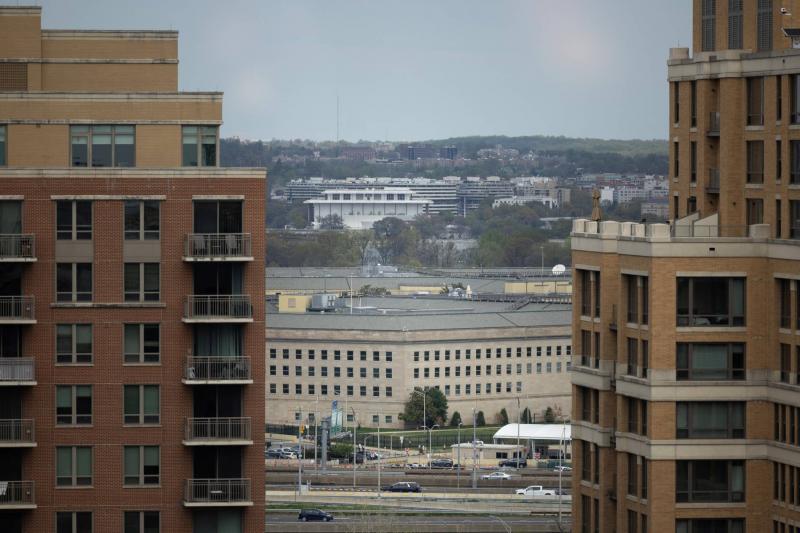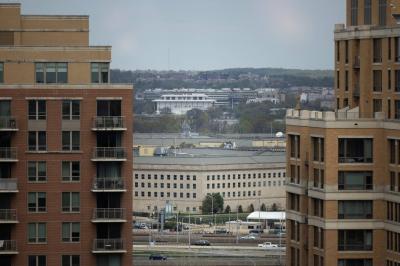The recent American intelligence leak has revealed an issue with intelligence operations. Protecting confidential information necessitates limiting its sharing, but preparing for threats akin to the September 11, 2001 attacks requires collaboration. Striking a balance between these two demands is a crucial challenge for U.S. President Joe Biden, as his administration aims to prevent leaks while also ensuring the security of the United States and maintaining intel-sharing among allies who fear exposure to risks.
This dilemma resurfaced following the FBI's arrest of Jack Teixeira, a 21-year-old member of the Air National Guard, on Thursday after he leaked dozens of highly classified U.S. documents online. These documents reportedly reveal sensitive details ranging from the vulnerabilities of the Ukrainian military to information about U.S. allies.
Former officials indicated that this breach is likely to push for stricter controls on information flow, potentially making it harder for security officials to "connect the dots" and avoid risks similar to the 2001 attacks in New York and Washington. Michael Allen, a former senior official in the National Security Council and Congress, stated, "The idea that a 21-year-old pilot can access all these documents... shows that we have over-shared information in the focus after 9/11 on sharing so we can connect the dots."
He continued, "The U.S. government will likely overreact in this case. They will severely limit the distribution of these types of documents, making it so that those who genuinely need access to them won't be able to anymore. I would urge them to take a more selective approach."
The Department of Justice did not clarify the charges Teixeira would face, but they are likely to include criminal charges related to willfully retaining and transmitting national defense information. The U.S. Department of Defense announced on Thursday that it is reviewing and updating the distribution lists for classified documents.
**The Need for Sharing**
After the 2001 attacks by al-Qaeda militants, the U.S. facilitated the sharing of intelligence among government agencies. The 2004 9/11 Commission report called for increased information exchange, blaming U.S. security agencies for fostering a "need-to-know" culture to protect information rather than promoting a "need-to-share" integrative culture. This, of course, implies that more people have access to confidential information.
An American official stated that some of the documents Teixeira is accused of publishing online were likely accessible to thousands of individuals with security clearances from the U.S. and allied governments, despite being highly sensitive. Former intelligence official Michael Atkinson noted, "One of the things we learned from 9/11... is that we really need to share information... Unfortunately, leaks can harm this beneficial pattern of information sharing."
The government took steps in 2013 to restrict access to information after nearly 750,000 classified and unclassified U.S. diplomatic and military documents were published on the WikiLeaks platform. The leaks by Chelsea Manning, who was then referred to as Army intelligence analyst Bradley Manning before transitioning, remain the largest known leak of sensitive materials from the U.S. government.
In response, the administration of former President Barack Obama established the Insider Threat program, which requires U.S. agencies to enhance protective measures against unauthorized disclosures, including monitoring and routine audits of classified computer networks "to detect, monitor, and analyze any unusual user behavior and flag indicators of misuse."
**A Different Kind of Threat**
While these changes may have provided some additional security, analysts state that government security programs are designed to avert leaks from those driven by ideology or a desire for financial reward, as opposed to other motivations, such as insiders who leak secrets for notoriety.
The Insider Threat program mandates government employees report mishandling of classified materials, their removal from secure facilities, unannounced travel of colleagues abroad, their acquaintances, and any unexplained increases in wealth. However, it cannot track colleagues’ personal online activities, such as leaking secret information to impress others.
Stephen Aftergood, an expert on U.S. governmental secrecy at the Federation of American Scientists, remarked that the Obama administration's program failed to detect and deter recent leaks but noted that it was designed to address a different threat. He stated, "The Insider Threat program was designed in response to what Bradley Manning did at that time and the WikiLeaks scenario where unauthorized leaks were ideologically or politically motivated... They were in response to alleged injustice or aimed at critiquing U.S. policy."
Teixeira was first identified by The New York Times, which described him as the administrator of an online chat group where he shared classified documents with around 20 to 30 mostly young individuals discussing their love for firearms and exchanging funny memes and video games. Aftergood noted, "The Insider Threat program was looking for someone like Bradley Manning... but this latest batch of leaks was not committed by a Bradley Manning analog. It's a new phenomenon where leaking is either a show-off act in front of friends... or is neutral regarding the content of the leaks."




